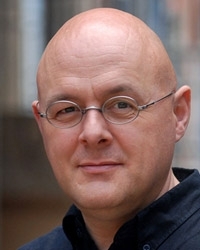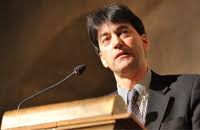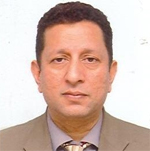WSIS Action Line C7 E-science: Assessment of progress made over the last 20 years
UNESCO
Session 244
With the deadline to achieve Sustainable Development Goals (SDGs) fast approaching, the World Summit on the Information Society (WSIS) is poised to address the critical role of the intersection of the Information and Communication Technologies (ICTs) and sciences in accelerating progress towards sustainable development goals. The focus of this panel will be to discuss and debate the most important issues in the intersection of new technologies and science and that will catalyze action around policy reform, establishing rights-based frameworks, enhancing digital accessibility, fostering openness in innovation, and ensuring inclusive multistakeholder collaboration. The proposal has been developed taking into account the UN’s Key Proposals Across the 12 Commitments.
The dynamic interface between eScience and new technologies serves as a critical axis for the future of scientific inquiry and collaboration. In this context, recognizing the revolutionary influences of developments like artificial intelligence, big data analytics, and synthetic data generation on research methodology, data dissemination, and collaborative scientific effort become critical. The incorporation of new technologies such as generative AI into the research ecosystem represent a significant leap, allowing for the automation of difficult analyses, the generation of novel ideas, and the acceleration of discoveries across multiple scientific fields. Similarly, the integration of big data analytics into eScience has unprecedented opportunities for predictive modeling, trend analysis, and informed decision-making. Additionally, the new field of synthetic data generation, a technology promising to revolutionize research by providing realistic, yet privacy-compliant datasets. While these technologies can address real time effectiveness of scientific solutions, they can also generate ethical, privacy and security risks to humanity.
Within these contexts, opening science and technological democratization can not only be a challenge but also unfold new dimensions for open access to research, data, software and scientific infrastructure. Thus new policies, strategies and workflows have become necessary for their governance, ethical upscaling, reproducibility and integrity.
Objective:
The panel will discuss and aim to establish a consensus on the need for WSIS to reorientate its actions towards the protection of digital rights, the guarantee for universal access to information and technology, the promotion of open solutions, and the engagement with multiple stakeholders.
Key Focus of the panel:
- Which new policy frameworks are required to optimize the role of emerging technologies, ensuring their accessibility, safeguarding digital rights, and promoting openness in the scientific domain?
- Key global and national policy shifts that will help prioritize digital rights, privacy, and ethical standards in the use of new technologies for scientific advancements.
- How can eScience contribute to improving the accessibility of new technologies for the broader scientific community?
- Strategies to eliminate barriers to access to new technologies for scientific research, focusing on underserved communities and marginalized groups.
- What forms of Openness and Innovation must be fostered to enhance the accessibility of new technologies to sciences?
- Open standards, open-source technologies, and open data essential for fostering innovation and collaboration to leverage the power of new technologies for solving complex global challenges and driving sustainable development.
- What new collaborations are essential to encourage multistakeholder collaboration in harnessing the potential of new ICT solutions for scientific innovation?
- Frameworks for effective collaboration among governments, private sector, academia, civil society, and international organizations to leverage ICTs and science for the SDGs.
- What new rights-Based approaches are essential in the wider domain of science and technology and innovation?
- Ensuring that ICTs and scientific advancements are aligned with human rights principles, addressing issues such as digital divide, data protection, and equitable access to technologies.
Expected Outcomes:
- The establishment of a consensus on policy reform, enhanced accessibility, the promotion of openness, and the engagement in multistakeholder collaboration as foundational pillars in customizing eScience to further the Sustainable Development Goals (SDGs).
- The development of a comprehensive action plan that articulates specific initiatives, offers policy recommendations, and outlines collaborative frameworks aimed at implementation by the year 2030.
- The issuance of a formal statement to be recognized by the Chief Executives Board (CEB) that reaffirms the significance of adopting rights-based, inclusive methodologies to maximize the utility of new technologies in scientific innovation and sustainable development.

Lidia Borrell-Damián is Secretary General of Science Europe, the association representing national public organisations that fund and perform research in Europe. She holds overall responsibility for the organisation’s strategic development and implementation of action plans. Her areas of experience cover a wide range of Research and Innovation (R&I) priorities, namely EU Framework Programme; European Research Area; research infrastructures; research ethics and integrity; research assessment processes; university-business cooperation; regional innovation; gender and diversity; Open Science; doctoral education; energy science policy.
She holds a Doctorate in Chemistry (Chemical Engineering Specialty; Solar Energy) from the University of Barcelona (1995). She worked at the European University Association (EUA) during 2006-2019, serving the last five years as the Director for R&I. She was Director of Research at Universitat Pompeu Fabra, (Barcelona, Spain, 2003-2005). Formerly, she was a Visiting Scholar at the University of Western Ontario (London, Canada, 1999-2001) and at North Carolina State University (Raleigh, USA, 1997-1998). She was an Assistant Professor at the University of Barcelona from 1990-1998.

Johan Rooryck is Executive Director of cOAlition S and a linguistics professor at Leiden University. He is the editor-in-chief of the Fair Open Access journal Glossa: a journal of general linguistics since 2016. From 1999 to 2015, he was the executive editor of Lingua (Elsevier), when its Editorial Team and Board, as well as its reader and author community, decided to leave Lingua to found Glossa. He also is a founding member and president of the Fair Open Access Alliance (FOAA) and Linguistics in Open Access (LingOA). He is a Member of the Academia Europaea.

Adj Professor Anthony Wong is the President of International Federation for Information Processing (IFIP). IFIP is an international organization in Information & Communications Technologies and Sciences covering five continents with a total membership of over half a million with links to more than 6000 scientists in Academia and Industry, across over 100 Technical Working Groups. IFIP is headquartered in Austria and established under the auspices of UNESCO in 1960.
Anthony has extensive background as a technologist, innovator, academic, lawyer and as a CIO with his dual qualifications in ICT and law. He is the Principal of AGW Legal & Advisory, a multidisciplinary legal and advisory practice advising in many areas of emergent technologies including AI, Data Governance, Digital Transformation, Cybersecurity, Privacy and Data protection, and Intellectual Property. He has also held senior management positions in multi-national corporations and government, including as CIO of the Australian Tourist Commission during the Sydney 2000 Olympics and led the development of digital publishing for Thomson (now Thomson Reuters) in the Asia Pacific in the 1990s. He chaired the Australian NSW Government ICT Advisory Panel and as an advisor to the ICT Board. He previously served on the Industry Innovation Council for the Australian Department of Innovation, Industry, Science, Research and Tertiary Education. He is Adjunct Professor of the School of Information and Communication Technologies, Faculty of Engineering, Computing and Science, Swinburne University of Technology, Sarawak Campus.

Bob Jones is deputy head of the IT department at CERN (http://www.cern.ch ) and a member of the board of directors of the EOSC Association (https://www.eosc.eu/).
He was the coordinator for the award-winning Helix Nebula Science Cloud Pre-Commercial Procurement project (http://www.hnscicloud.eu/) procuring innovative cloud services for the European research community and contributing to the EOSC.
Bob was the rapporteur for EOSC Sustainability Working Group (https://www.eoscsecretariat.eu/working-groups/sustainability-working-group) and previously the head of CERN openlab (https://openlab.cern/).
His experience in the distributed computing arena includes mandates as the project director of the EGEE projects (2004-2010) which led to the creation of EGI (http://www.egi.eu/).
Publications: http://orcid.org/0000-0001-9092-4589
LinkedIn : https://www.linkedin.com/in/bobjonescern/
Twitter: @BobJonesAtCERN

Rajinder Jhol is currently working in the domains of Climate Action (key words: technology start-up, Climate Finance, Natural Asset Backed Securities, Carbon Market, Forest protection, ecosystem services, innovation for SDGs). Rajinder previously served as a consultant to UNESCO. With over a decade of expertise in digitalization and governance, he has contributed to a variety of digital transformation activities for governments, the private sector, and NGOs for the Swiss government. He serves as a rapporteur at the Hague Institute for Accountability in the Digital Age and researches AI applications in mediation, healthcare, education, and government. Rajinder's extensive experience positions him as a leader in leveraging technology for societal benefit.

Bhanu Neupane is trained in Hydrosystems, and Knowledge Management. Currently he serves with UNESCO as an Advisor for Open Solutions and ICT and Sciences. He has 20+ years of experience in developing, designing and implementing various Open solutions. He is proficient in various open source technologies, with some experience in developing and deploying Open Applications, NLP, and Agile methodologies. He also serves as the coordinator for UNESCO's actions to promote multiligualism in the cyberspace. He serves as a visiting professor and regularly teaches courses related to knowledge Management, Multi-criteria Decision-Making, Water Resources management, and Disaster Risk Reduction at Universities.
-
 C3. Access to information and knowledge
C3. Access to information and knowledge
-
 Goal 2: End hunger, achieve food security and improved nutrition and promote sustainable agriculture
Goal 2: End hunger, achieve food security and improved nutrition and promote sustainable agriculture
-
 Goal 6: Ensure access to water and sanitation for all
Goal 6: Ensure access to water and sanitation for all
-
 Goal 7: Ensure access to affordable, reliable, sustainable and modern energy for all
Goal 7: Ensure access to affordable, reliable, sustainable and modern energy for all
-
 Goal 9: Build resilient infrastructure, promote sustainable industrialization and foster innovation
Goal 9: Build resilient infrastructure, promote sustainable industrialization and foster innovation
-
 Goal 13: Take urgent action to combat climate change and its impacts
Goal 13: Take urgent action to combat climate change and its impacts
-
 Goal 16: Promote just, peaceful and inclusive societies
Goal 16: Promote just, peaceful and inclusive societies
-
 Goal 17: Revitalize the global partnership for sustainable development
Goal 17: Revitalize the global partnership for sustainable development